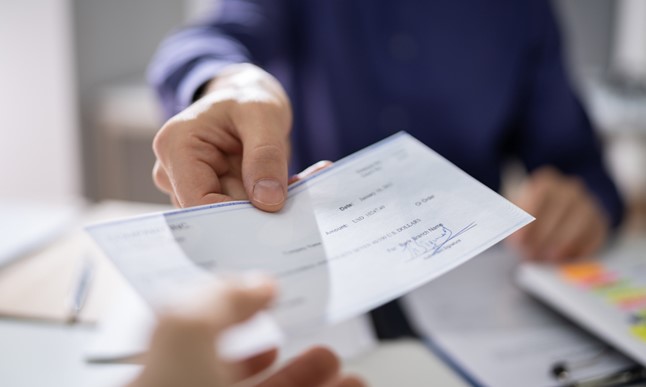As much as we hate to think about it, homeowners associations (HOA) are vulnerable to fraud. When thousands of dollars are being handled and managed by a group of volunteers, all it takes is one dishonest person to pilfer funds and destroy the board’s reputation.
The median loss of a nonprofit fraud case amounts to $75,000, according to the Association of Certified Fraud Examiners. Because there’s often a lack of oversight and checks and balances, these small groups are vulnerable to embezzlement and theft from within.
How can fraud happen?
People often think fraud can’t happen on their watch. It’s easy to fall into a false sense of security, especially if you get along with the people on your HOA board, who also happen to be your neighbors.
- We have a great group of people; if we implement these tools, what does that say about us?
- If fraud were happening, I’d be smart enough to recognize it. After all, I read through all the financial statements.
Few people join HOA boards with the intention of committing embezzlement. While some folks are just plain dishonest, it’s most often a crime of circumstance and opportunity.
In the late 1940s, Criminologist Donald R. Cressey developed the theory of the “fraud triangle,” which explains the three motivations people have when they steal money.
- Opportunity: When there’s a lack of controls or proper oversight of the HOA funds, the fraudster will recognize that pulling off the heist without detection would be easy. (At the very least, they may think of a way to disguise embezzlement as a legitimate purchase.)
- Pressure: This can stem from the person’s greed, or from an external situation, such as overwhelming expenses and debts.
- Rationalization: These are the things people tell themselves to feel like stealing is OK in their situation. (“I’ll pay it right back!” “I do so much for this board, and I deserve compensation.”)
All three factors contribute to a person’s decision to steal money. Under the right circumstances, someone with access could end up helping themselves to the HOA reserves. You can imagine the fallout. How could residents who put their hard-earned dollars in your care trust the HOA board?
Best practices for HOAs to protect funds
Divide, conquer and protect
For every action in the accounts, there should be someone else that oversees it. But don’t get complacent with the monthly review of the financial reports, because there are easy ways to conceal missing money. Adopt a checks and balances mindset. It should never fall to a single person to sign checks, prepare invoices and reconcile bank statements.
- Require two signatures on every check.
- Assign someone to verify that supply purchases and services match the invoice.
- Rotate bookkeeping duties. Embezzlement requires a constant presence, but switching assigned duties and mandated time off can create a barrier.
Make use of advanced tools
There’s often a perception that adding levels of security would create more work. But that’s not always true. With the help of your bank, you can streamline some of these security processes, and once they’re in place, they take minimal effort from you. Here are two examples:
1. Positive pay
This cash management tool can make it harder for someone to write out a phony check against an HOA account. Here’s how it works. You provide the bank with your list of authorized checks. When checks are presented as payment, the bank compares the check with the information in your authorized payments file. If there’s a mismatch, the bank stops payment and flags it for your review.
2. Automatic alerts
While preparing and sharing a complete set of financial reports is best practice, you can also use digital tools to stay on top of transactions as they happen.
- Get notified when there’s a deposit or withdrawal into reserves.
- For operating accounts, request a daily summary of transactions.
- Security alerts ping you when an online username and password is updated, or if an account gets locked after several failed sign-on attempts.
- Balance alerts let you know when an account falls below a specific dollar amount.
Get more done in less time, and protect your assets with cash management tools at Minnwest Bank. Reach out to a cash management specialist today.


